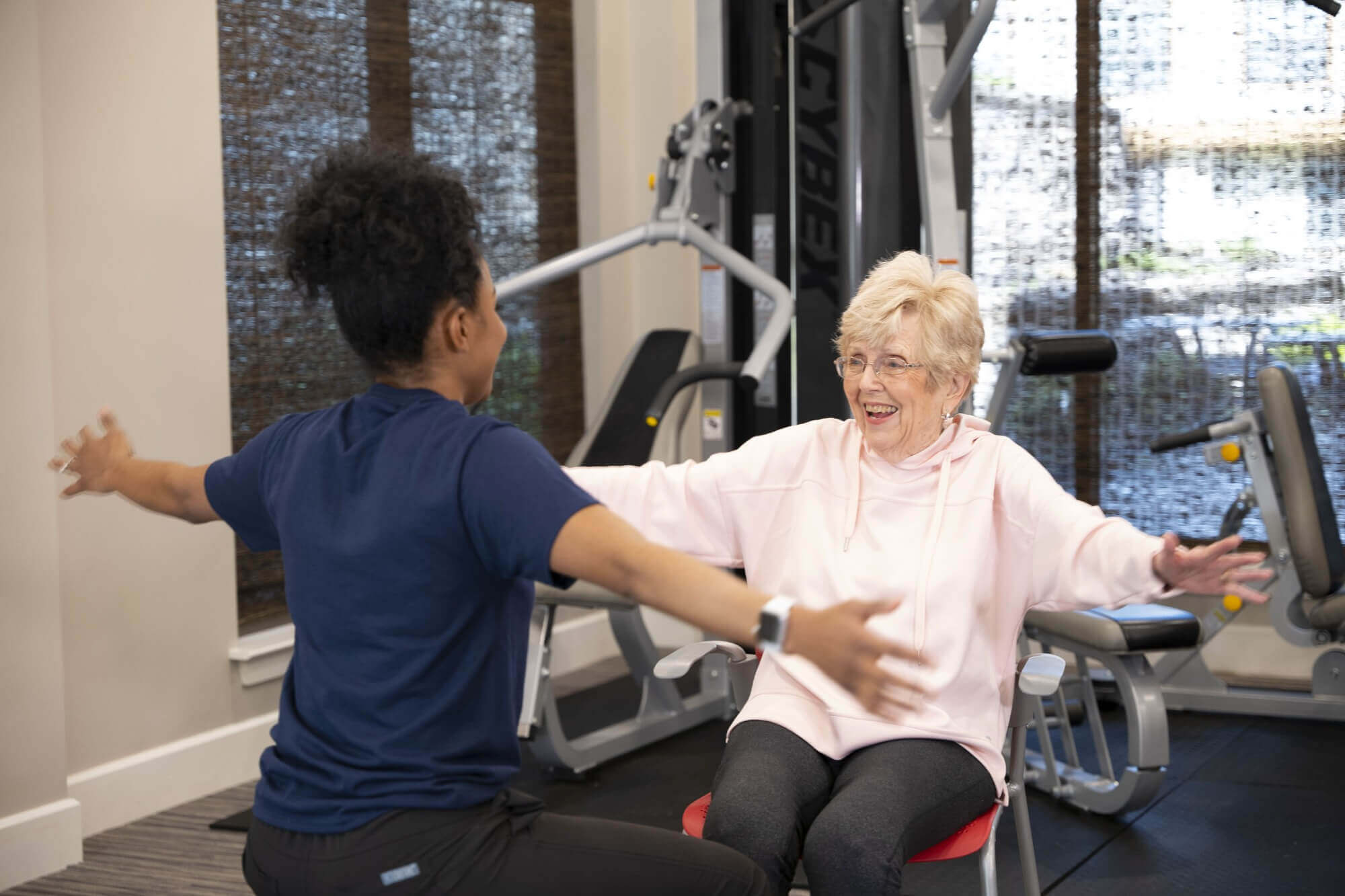Table of contents
A Goal-Oriented Approach to Therapeutic On-Site Care for Seniors
Why a goal-oriented approach?
The goals of clinical therapy are multi-faceted. While most types of therapy are commonly thought to have a positive physical impact, that effort is a part of a larger, more overarching goal to improve one’s overall quality of life that involves both physical and emotional state of being. A well-rounded approach can impact mental, social, and emotional wellbeing. This is even more important for the senior population considering the close association with chronic pain and depression, as well as dementia and depression. (Depression is common in up to 40% of adults experiencing dementia.)
Instead of merely identifying physical goals, a multi-faceted, goal-oriented approach helps seniors tap into the greater picture of what they want to get out of their daily life. Having therapy services on-site at senior living communities helps seniors live healthier and happier lives while gaining or maintaining their independence.
Rather than assigning very specific physical goals for a resident, on-site therapists engage in conversations with the resident to help them find an activity they want to accomplish and has meaning for them.
Goals often look like:
- Attending the event of a grandchild
- Talking with a family member on the phone more often
- Maintaining their ability to pay their bills
- Engaging in a new wellness activity in the community (yoga, walking club, movie night, etc.)
- Being able to walk their dog on their own.
Whatever activity they choose, the ownership of setting their own goal is cognitively and emotionally rewarding.
One study found that a resident’s ability to play a role in choosing their own activities in their community (as well as what they can do in the day throughout the facility) was associated with fewer depressive symptoms.
Beyond the reward of accomplishing their goal, this approach also establishes more trust and a personal connection between the therapist and resident. It becomes more than just a “to-do” list from the therapist. It helps seniors feel that they are a part of their community – a home-like environment that is there to support them. Through asking questions, therapists learn more about their goals. And working regularly together on-site, therapists gain a better understanding of the resident’s history and personality. This relationship is even more rewarding when they get to celebrate a win together!



